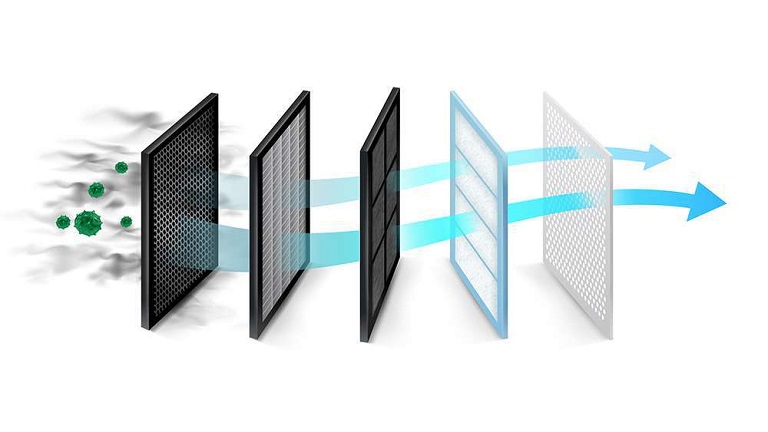
Air filters function on the basic principle of absorption of catalytic action that can aid removal of particulate matter, odours, gases and other pollutants. This is made of fibrous materials that can trap particulate matter or air ionisers which have static electric charge, thereby attracting particles like dust, pollen and other volatile organic compounds.
These air filters are classified on basis of usage, performance and type.
As people adopt healthier lifestyle habits, cleaner surroundings and air have also become a priority. There are many products in the market today promoting clean, germ-free air. It is useful to understand the basic terms and functions associated with them in our best interests, says a company that specialises in fresh air ventilation systems for commercial.
What is MERV?
MERV stands for minimum efficiency reporting value given by ASHRAE or the American society of heating, refrigeration and air conditioning engineers.
The MERV is a standard that indicates the air filter’s efficiency at its lowest performance. What MERV ratings essentially do is help you compare between filters and choose the most efficient one.
There are various filters used for different purposes. For instance, in an industrial setting, the air filter used could be different from the one used in a fresh air ventilation system for a home. HEPA is another popular standard in the ventilation and air purification market.
How does the MERV Rating Work?
ASHRAE established the MERV rating in the 80s as part of an air filter testing standard. The previous standard was outdated and in use since the 60’s. The MERV standard is a measure of how well the filter works to trap airborne particulate matter within certain size ranges.
The range of size for these particles is between 0.3 microns to 10 microns, which means the filters should ideally be able to filter out particles of the size 0.3 microns as well.
For comparison, the width of a strand of a spider’s web silk is around 3-8 microns, while the size of a COVID-19 virus is between 0.01 microns and 0.14 microns.
How is MERV rating carried out?
The performance of the air filter is observed by noting the upward and downward particle counts over six testing intervals. The result is a consolidated weighted average of the test results of these six iterations. The iterations begin with a clean air filter and proceed with each iteration adding test dust, where the air filters are then measured for performance.
The air filter is evaluated for performance before and after each iteration. Based on how it performs, the air filter is assigned a score, the score is what we know as the MERV rating.
What does MERV measure?
MERV has emerged as a standard for air filters, predominantly in the USA, and even across the world. This is due to the simple fact that the testing is rigorous and meticulous, and also there is a range of commonly found contaminants and pollutants that the air filter is fit to filter depending on the rating it gets.
Let us look at the different MERV ratings and what it is expected to filter.
Filters with rating MERV 1 to MERV 4 effectively remove larger particulate matter like lint, pet hair, dander, cloth-based fibres, and fine debris like sand, dust and sawdust from construction sites, lumber and any other renovation work areas.
Filters with ratings of MERV 5 to MERV 8 are finer and can filter out pollen, fine dust that is as small as 3 microns, spores, and any chemicals with larger particulate matter. These are commonly used in food-based industrial settings, kitchens, hospitals and nursing homes.
The next range of filter ratings between MERV 9 to MERV 12 is the ones that classify as capable to filter kitchen and furnace fumes, and industrial fine particles like dust and chemicals.
The highest range of MERV 13 to MERV 16 is very effective in filtering out airborne bacteria, fine smoke like cigarette smoke, and any other microbes released through droplets.
Selecting the right air filter for your home or office:
The first aspect to keep in mind while choosing an air filter for your fresh air ventilation system at home is the air quality. The indoor air quality of your home will depend on a variety of factors like weather, place, proximity to polluting establishments or roads, geography and others. A detailed evaluation of your indoor air quality will also tell you details about what contaminants you should target for removal. For instance, if your office faces a main highway with truck traffic, you should consider an air purifier of a higher MERV rating. MERV-rated filters are fairly efficient and can get rid of most particulate pollutants based on their rating.
Cleair is the authorised distributor of Renson, the world leader in fresh air systems. With decades of expertise, we are committed to providing clean, germ-free homes, offices and spaces.


